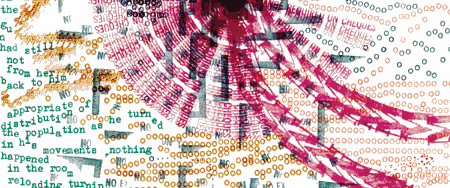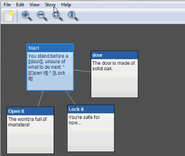A Web Reply to the Post-Web Generation
At the recent ELO conference in Montréal Leonardo Flores introduced the concept of “3rd Generation” electronic literature. I was at another session during his influential talk, but I heard about the concept from him beforehand and have read about it on Twitter (a 3rd generation context, I believe) and Flores’s blog (more of a 2nd generation context, I believe). One of the aspects of this concept is that the third generation of e-lit writers makes use of existing platforms (Twitter APIs, for instance) rather than developing their own interfaces. Blogging is a bit different from hand-rolled HTML, but one administers one’s own blog.




